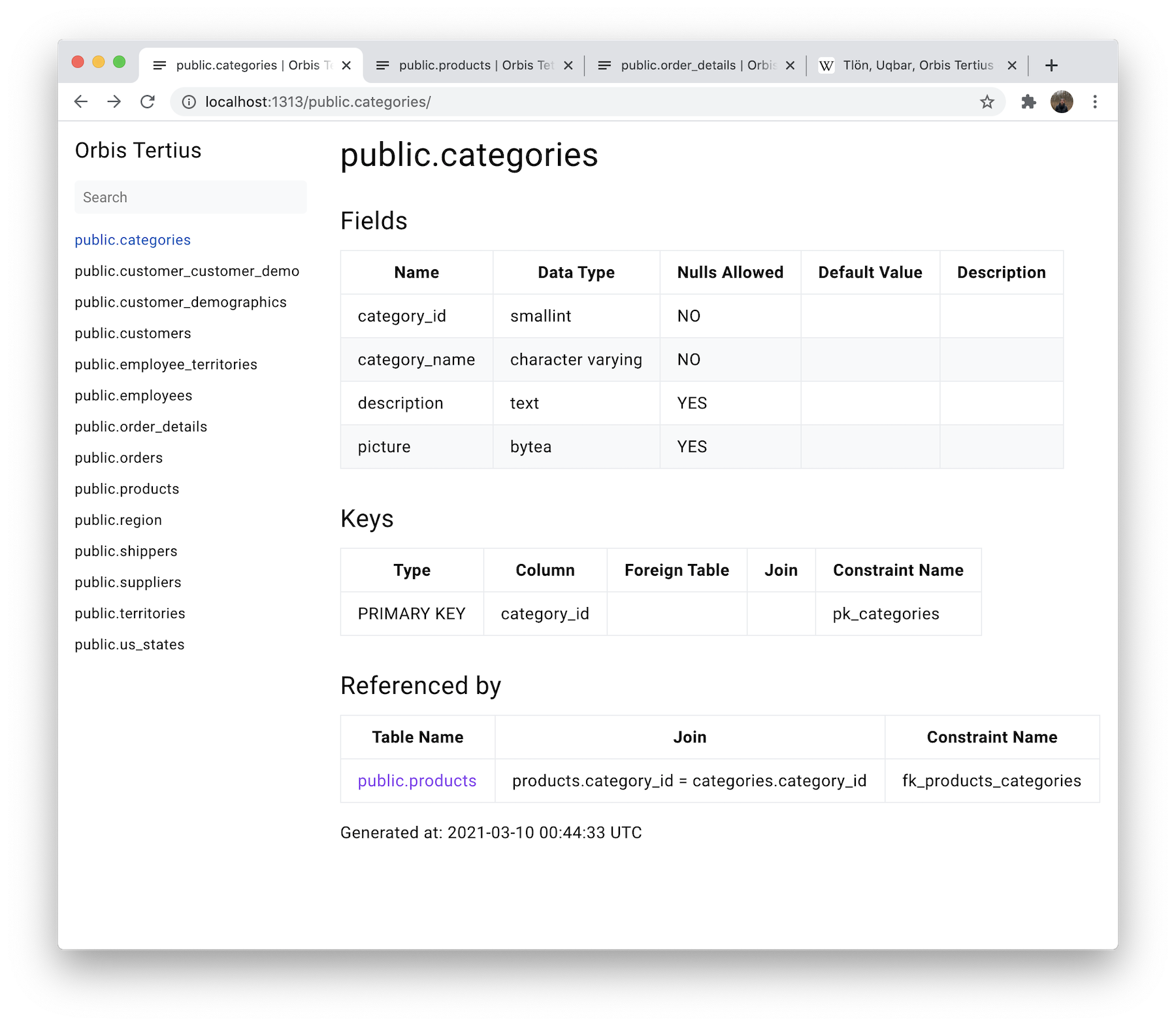A tool to generate a human-readable data dictionary from the schema of an existing PostgreSQL database.
setup.py installs a Python command-line script orbis which probes the information_schema views (and a bit from system catalog tables) and generates a Markdown file per table, listing column details and descriptions, primary and foreign key columns, and relationships to and from other tables.
We then use Hugo to generate a static HTML site from this Markdown content. While Hugo itself must be installed as a prerequisite, a configuration file and Hugo Book theme are included.
(Assuming macOS and homebrew)
- Clone this repo and
cdinto it:git clone https://github.com/nerium-data/orbis-tertius.git && cd orbis-tertius - Create a python virtualenv and install with pip:
python -m venv .venv source .venv/bin/activate pip install .
- Install Hugo with homebrew:
brew install hugo
- Copy
.env.sampleto.envand edit the$DATABASE_URLand$SCHEMASvalues to suit the desired documentation target database and schemas.$SCHEMASdefaults topublic; you can specify multiple schema names separated by spaces (be sure to surround the whole list with double-quotes) -- see.env.samplefor an example. - Command
orbisinvokes script to generate the Markdown, which is saved indictionary/contentinitially - Hugo command to create HTML version of the data dictionary docs:
hugo -s dictionary -d ../public --cleanDestinationDir --minify
Final Hugo output will be saved to public directory and can be served by any static site host.
- Clone repo and build the Docker image
git clone https://github.com/nerium-data/orbis-tertius.git cd orbis-tertius docker build --rm -t orbis .
- Copy
.env.sampleto.envand edit the$DATABASE_URLand$SCHEMASvalues to suit the desired documentation target database and schemas.$SCHEMASdefaults topublic; you can specify multiple schema names separated by spaces -- see.env.samplefor an example. [Note: be sure to remember that Docker is weird about quotation marks in env files] - Run the built image, mounting the
publicvolume to a local directory and passing.envfile to the container environmentdocker run -it \ -v $(pwd)/public:/public \ --env-file=.env \ orbis
Final Hugo output will be saved to public directory and can be served by any static site host. The raw Markdown output from orbis is included in public/markdown.
I just wanted to point out that the inclusion of Hugo and the Hugo Book theme here are mainly for convenience/demonstration. Naturally, other themes could be used; if I had more supplementary content to include, I think the Doks theme is quite nice. Customization of any of these themes, or a fully custom theme would of course also be possible.
In fact, the raw Markdown files generated by orbis are suitable for use with any of a variety of static site generators, or import into another CMS, including Confluence, etc. One might also use wkhtmltopdf or Pandoc against them to generate documentation in PDF or other formats.
The project name is inspired by the fictional encyclopedia in Jorge Luis Borges's short story, "Tlön, Uqbar, Orbis Tertius".
